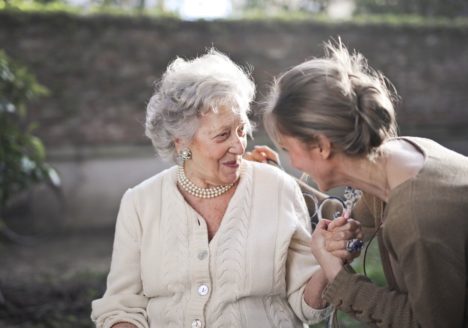Category / Case Studies / End of Life Ethics
-
The Case of Jennie M: To Tube Feed or Not
Jennie has an advance directive which does not address artificial nutrition. Who makes this decision now that Jennie can’t speak for herself?
-
The Case of Jesse, Unrepresented and Homeless
A 60-year-old homeless man, “Jesse,” is found confused and in distress by a passerby who calls 911. Paramedics bring the man to the hospital. Jesse’s feet and legs are swollen and covered in ulcers and dead tissue—diagnosed as osteomyelitis, or infection of his legs.
-
The Case of Sepsis in a Newborn
The “Clinical Moment” in Short Bowel Syndrome: What Can We Do, What Should We Do?
-
The Case of Pat: Unprepared to Talk About Dying
Pat B. had never talked with her father about dying. Even when he was older and had remarried after her mother’s death, there seemed no opportunity conducive for such a talk.
-
The Case of Nancy Cruzan
A thirty-year-old accident victim suffered lack of oxygen to her brain for six to twenty minutes. She was in a persistently comatose and vegetative state, sustained by a gastronomy feeding tube, although her respiration and circulation were normal. The opinion of medical professionals was that she could live thirty-years. She now lies in a Missouri state hospital at the state’s expense.
-
After the Heart Attack – Sister Rosemary Flanigan, PhD
In early 2012, at age 85, Dr. Rosemary Flanigan suffered and survived a heart attack. Fifteen years earlier, Dr. Flanigan wrote: “It makes me mad…
-
The Case of Helga Wanglie – Futile Treatment
Does the suggestion of withdrawal of life-sustaining technologies reflect moral decay in our culture?
-
The Case of Freda: Nursing Staff in Moral Distress When Patient’s Wishes Not Followed
Freda is a thirty-two-year-old woman in an advanced fixed stage of multiple sclerosis. Freda’s inability to swallow has caused her to lose weight to the point that she is clinically malnourished. Freda’s mother insists on insertion of a gastric feeding tube, which puts the nursing staff in a high state of moral distress.
-
The Case of Claire Conroy
Must Patients Always Be Given Food and Water? An eighty-four-year-old non-ambulatory nursing home patient was confined to semi-fetal condition with “severe organic brain syndrome.” She had necrotic gangrenous leg ulcers and no bowel control. The patient was not in a vegetative state; her life expectancy could not be predicted but it was thought to…



